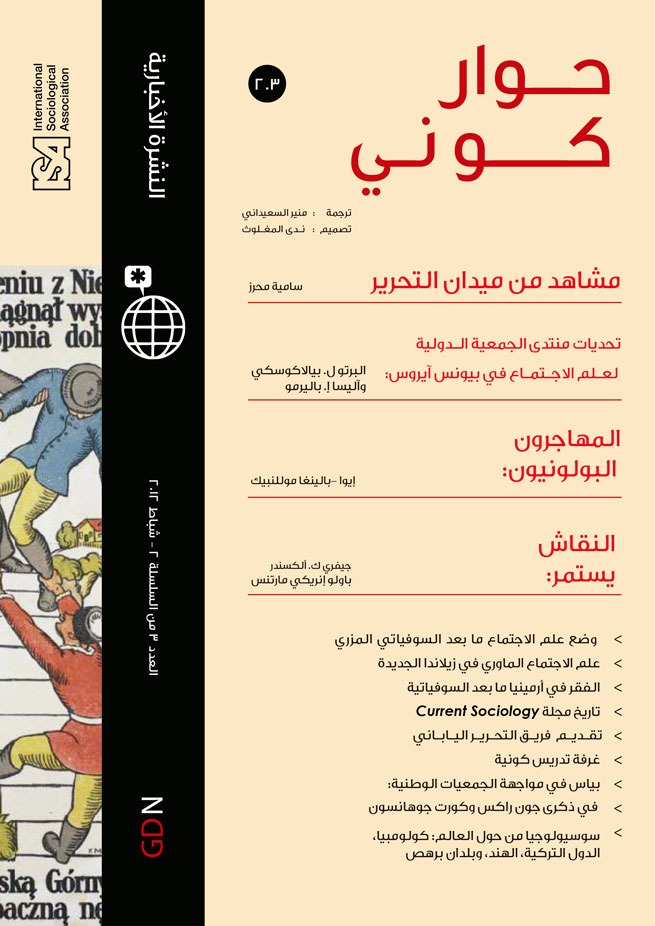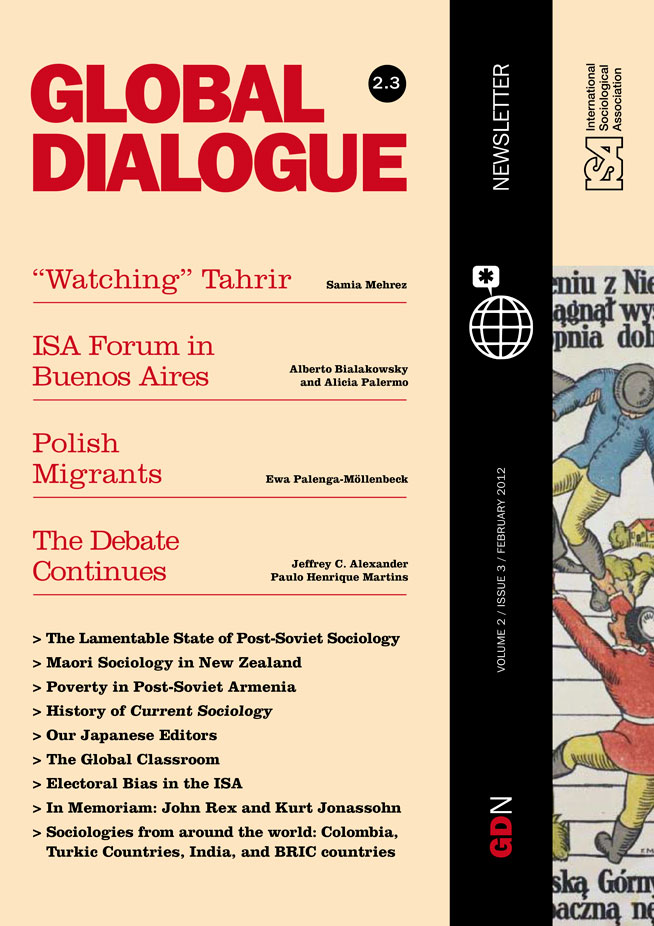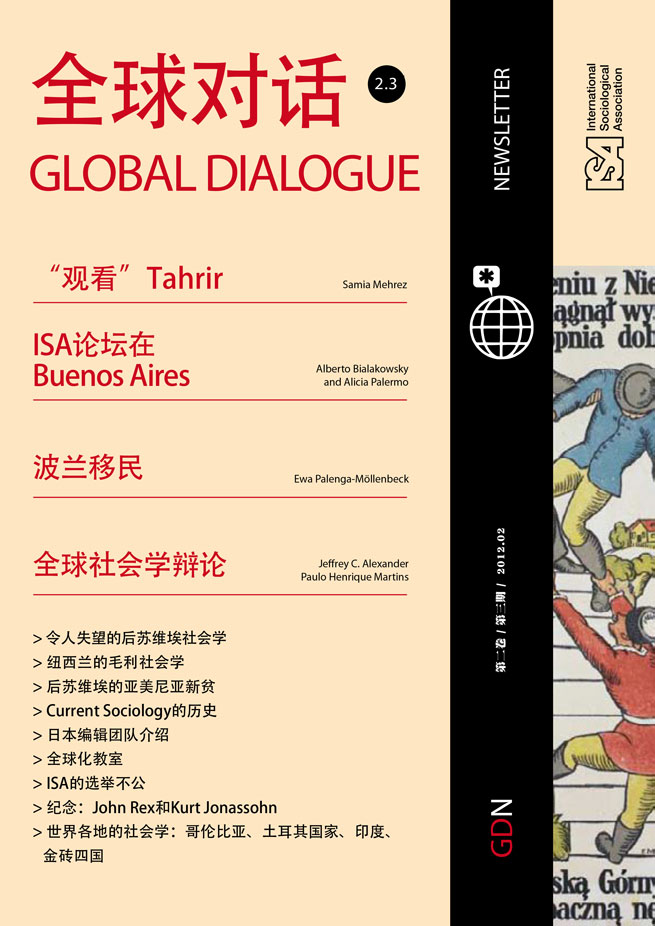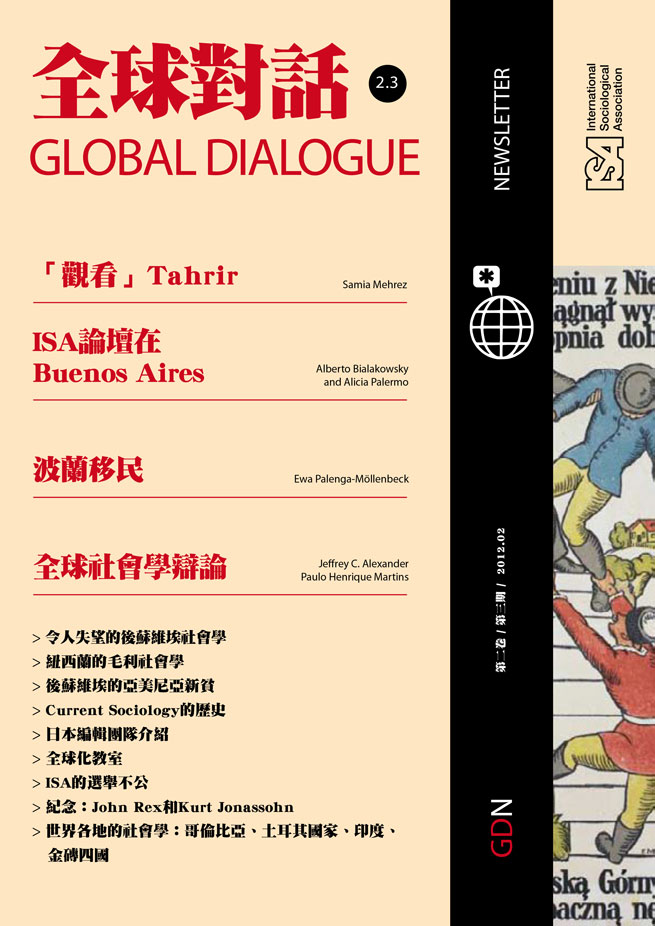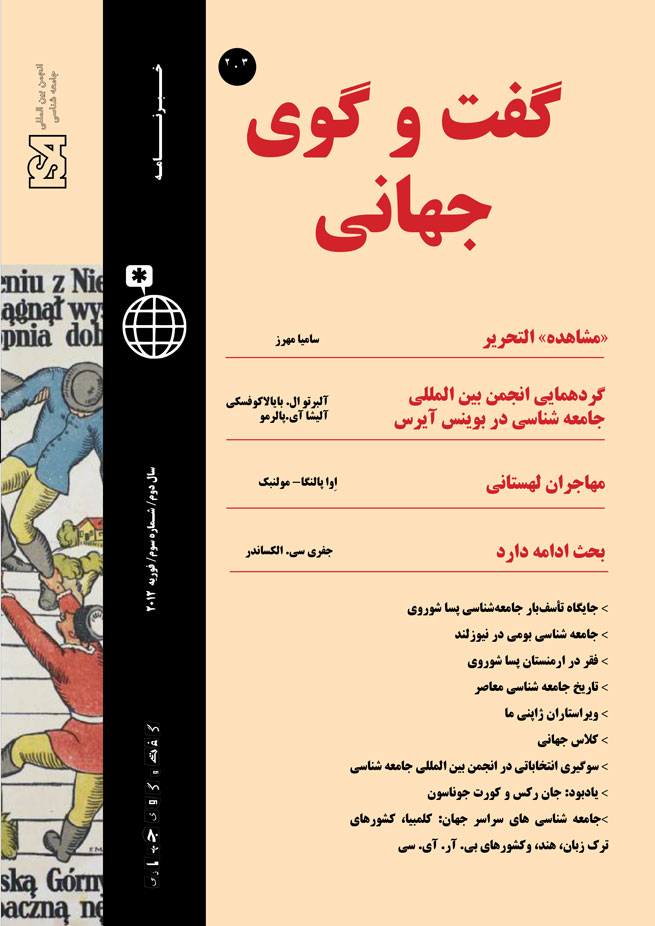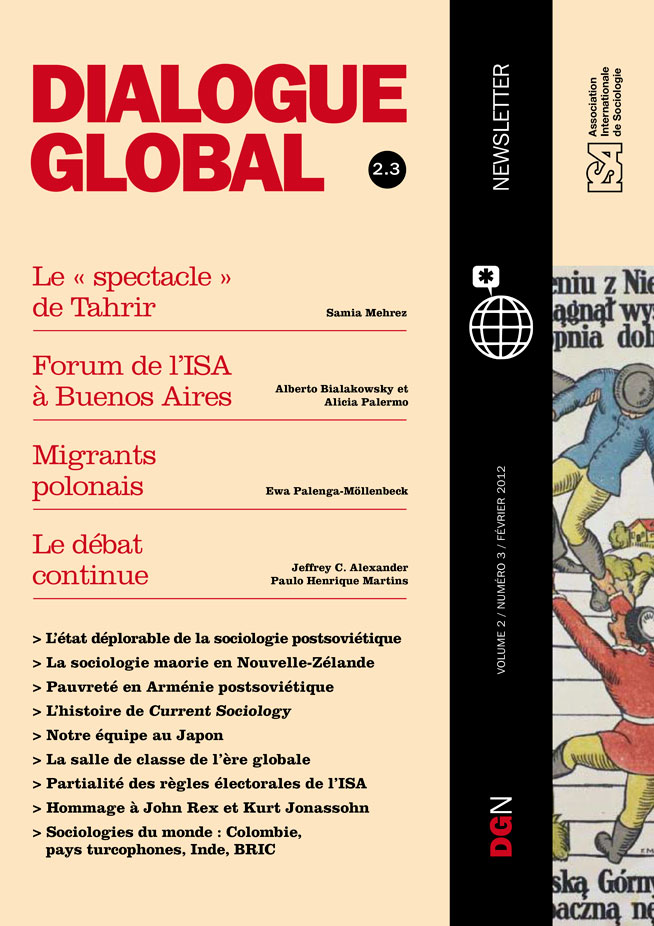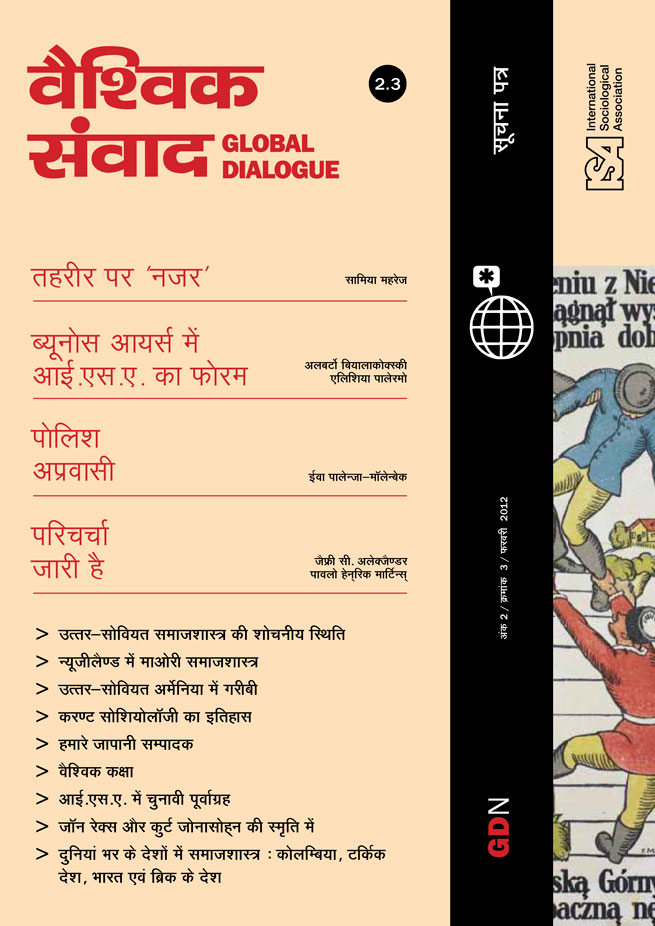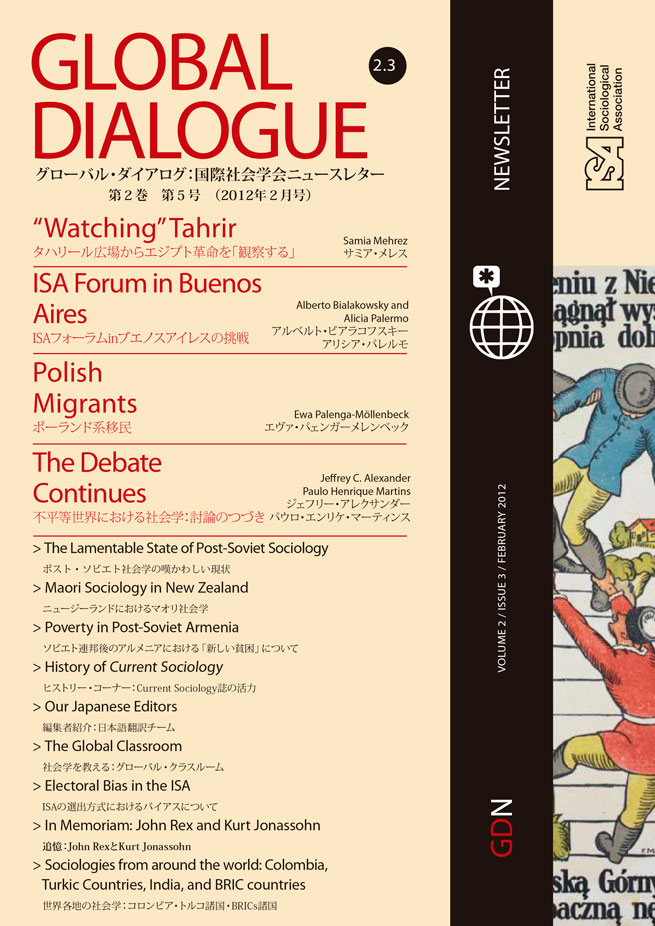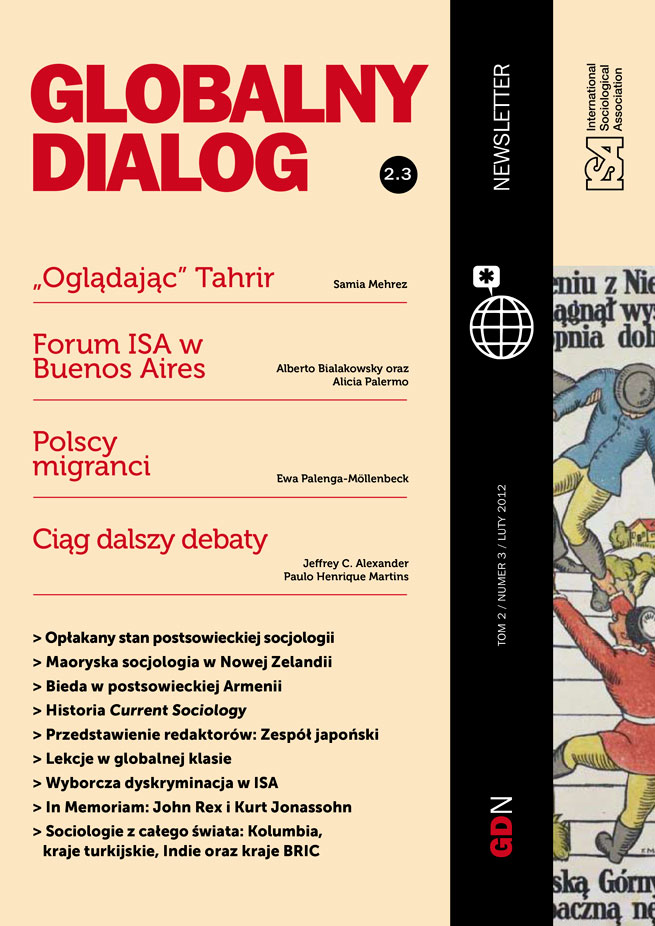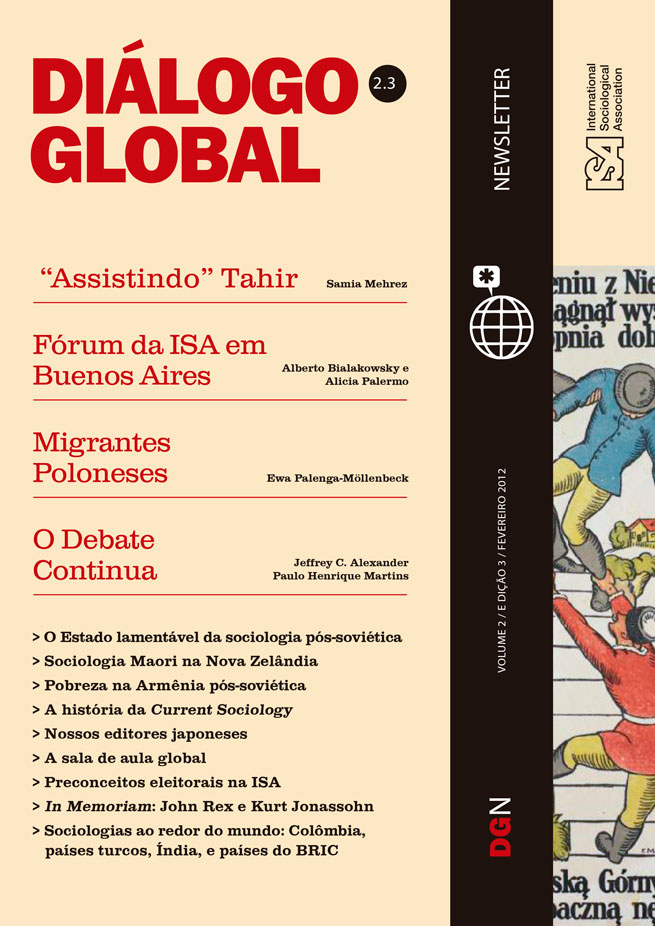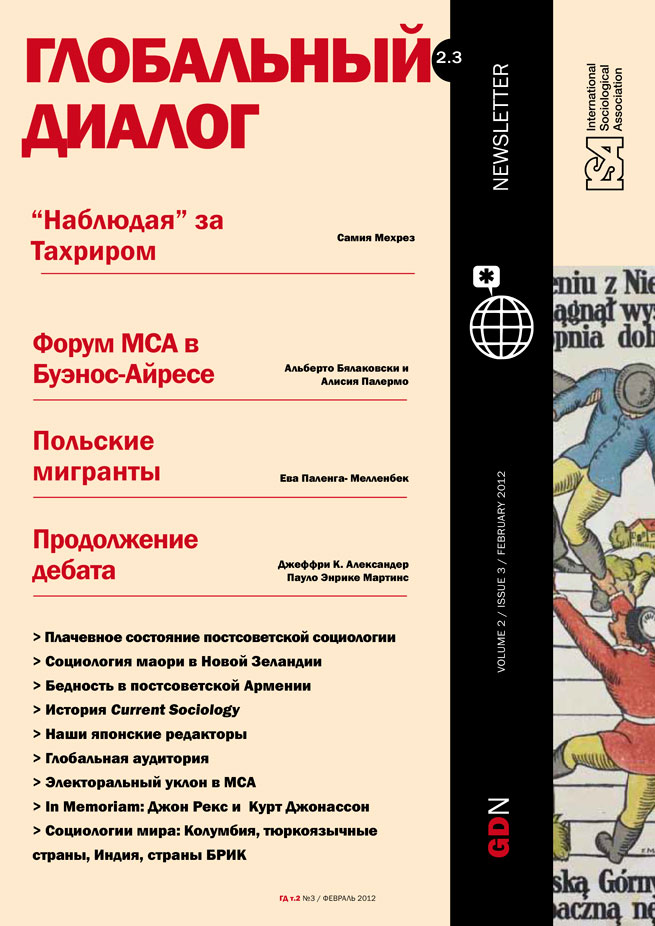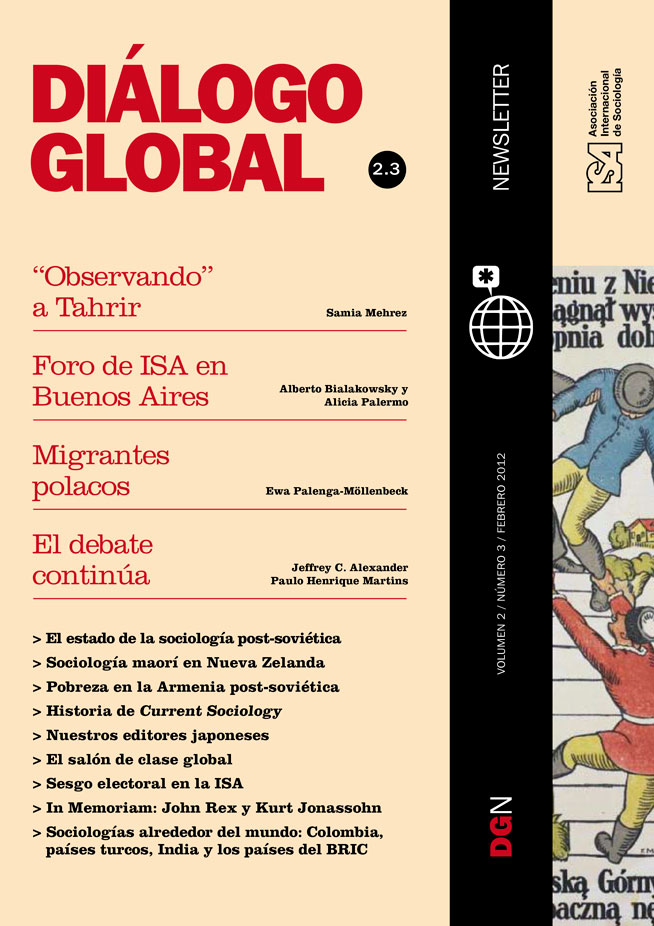Read more about From the Regions
A Note on the “New Poverty” in Post-Soviet Armenia
by Gevorg Poghosyan

The Lamentable State of Post-Soviet Sociology
by Victor Vakhshtayn
March 01, 2012
New Zealand is a settler state. It has a colonial past that it must constantly confront. This means that sociology in New Zealand is well placed to critically engage and respond to the reproduction of privilege and disadvantage as they relate to indigenous (Māori) and non-indigenous peoples in New Zealand. As a Māori sociologist with a personal and scholarly interest in Māori-centered research I believe that sociologists have a strong contribution to make in cross-cultural research with a social justice agenda. While there are a relatively small number of senior and emerging Māori sociologists in New Zealand there are a significant number of non-indigenous sociologists whose research is centered on the Māori experience.
The Māori historical experience of colonization and the contemporary reality of marginalization, deprivation and scarcity means that Māori ethnic identity is a site of struggle and resistance. As tangata whenua (people of the land, indigenous people), Māori find their social location in New Zealand society to be highly contested. While over-represented in every negative social indicator, they have often had to contest political and populist rhetoric that exaggerates their modest achievements won as rights-bearing indigenous peoples. Māori political struggle has sought redress for land and resources that have been illegally alienated in the past (and often a very contemporary past). The successful resolution of some of these ongoing struggles has meant that every aspect of their life is politicized and scrutinized.
That there exist major inequalities between Māori and non-Māori is clear. Extensive research on the Māori condition shows that Māori suffer disadvantages from birth. The Māori infant is more likely to die than the non-Māori infant. The Māori child is less likely to participate in early childhood education. Māori are much more likely to be suspended and expelled from school, thereby reducing their educational achievement and increasing the likelihood of juvenile criminality. Māori unemployment rates are significantly higher than that of non-Māori, and Māori income is considerably lower. Māori are more likely to require government assistance and to be dependent on government benefits. Many Māori live in inadequate housing and suffer a poorer mental and physical health status than non-Māori. Māori disadvantage and difference are most clearly marked in the criminal justice system. Māori are over-represented both as victims and offenders, and while making up 15% of the total population of New Zealand they make up more than 50% of the prison population. For too many Māori life is tied to unemployment, illness, psychiatric conditions, poverty and prison. Though the position and legitimacy of Māori culture within New Zealand society has been greatly enhanced since the 1970s, with greater respect afforded to our culture and language, the Māori renaissance has been far less successful in addressing the many other social inequities.
Sociological research can play an important role in addressing these critical issues. The power of research is most clearly demonstrated in projects where members of a team draw on their multiple research traditions and where findings are widely distributed. This is not to elide questions of power. All research is dominated by the dynamics of power (and powerlessness). Power relations pervade the research process from the initial investment to design, participant engagement, implementation and dissemination. Nonetheless, a focus on social justice outcomes brings to light the challenges and opportunities that researchers and research participants may encounter.
To conclude, I want to reflect specifically on cross-cultural issues in a Māori-centered research environment. In the current environment there is research that is Māori-led from beginning to end, but non-Māori researchers can play a vital role, especially when they are willing to forgo traditional research controls and work within Māori determined contexts. Until recently, Māori communities have not benefited from mainstream research, which usually adopted a “deficit” lens. Today these same communities often recognize the advantages of collaborative multi-cultural research, although there are still others who insist on Māori research with Māori for Māori. Members of oppressed groups have had to study dominant groups informally all their lives in order to learn how to get by and to navigate dominant spaces. Through our collaborations we can teach non-indigenous researchers about ourselves but perhaps, more tellingly, we can teach them about themselves.
Tracey McIntosh, The University of Auckland, New Zealand
This issue is not available yet in this language.
Request to be notified when the issue is available in your language.
If you prefer, you can access previous issues available in your language:
